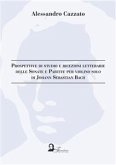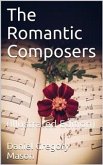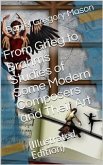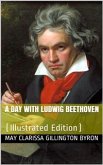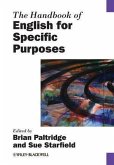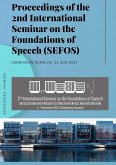Excerpt from Book: The constant manifestation of determination, or will, upon the periodical recurrence of the accented beats. It is only by rhythm that one wins attention. Particularly with the organ, all accents, all effects are dependent upon it. You may bear upon the keyboard with the weight of pounds, with all the strength of your shoulders—you will gain nothing by it. But delay by a tenth of a second the attack of a chord, or prolong this same chord the very least, and judge of the effect produced! Upon a manual not provided with a swell-box one may obtain a crescendo without the aid of a mechanism of any kind: by the simple augmentation of the duration allowed successive chords or detached phrases. To play upon an organ is to deal with chronometric values. Woe be unto you if your tempo is not absolutely regular, if your will does not manifest itself at every breathing-point of the phrase, at every "lift"; if you unconsciously permit yourself to "hurry"! Would you like a lesson in rhythm? Listen to those immense locomotives dragging behind them tons of merchandise; admire the formidable piston stroke which marks every recurrence of the accent, slowly but relentlessly; well may you believe that you hear the march of Fate itself. It causes one to shudder. To be master of one's self it is necessary to abstain from every superfluous movement, from any displacement of the body. A good organist sits firmly, well-balanced upon his bench, inclining slightly towards the manuals, never permitting his feet to rest upon the frame which surrounds the pedals, but letting them glide lightly along over the keys; heels and knees riveted, so to speak, together. Nature has vouchsafed us two guides of the greatest value; with the heels pressed one against the other, the maximum separation of the other extremities of the feet gives us a fifth; with the knees held similarly together, the maximum interval obtainable should be an octave. Precision and confidence will never be obtained except by adopting this method; holding the two limbs as if bound together, the two feet unceasingly in contact with each other.
Hinweis: Dieser Artikel kann nur an eine deutsche Lieferadresse ausgeliefert werden.
Hinweis: Dieser Artikel kann nur an eine deutsche Lieferadresse ausgeliefert werden.



